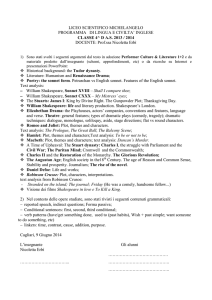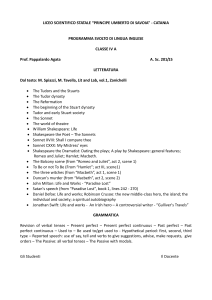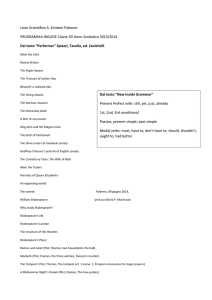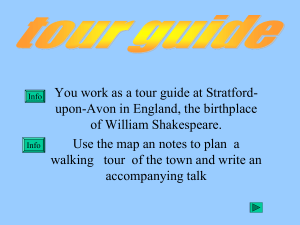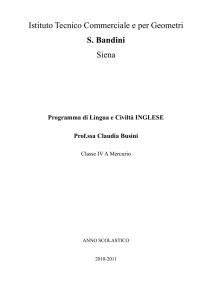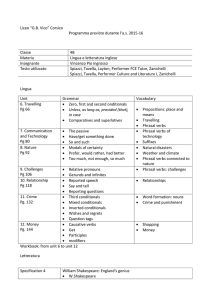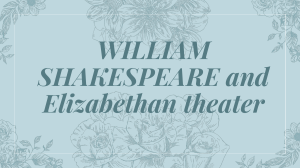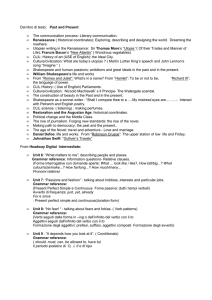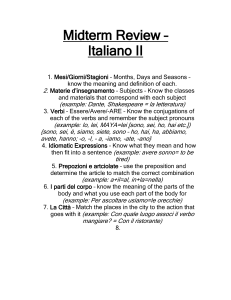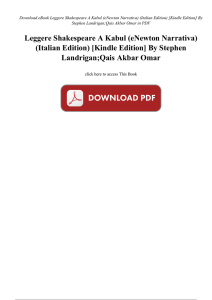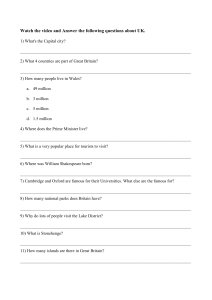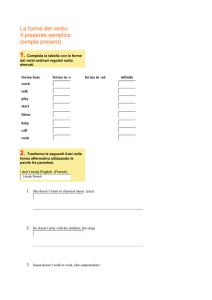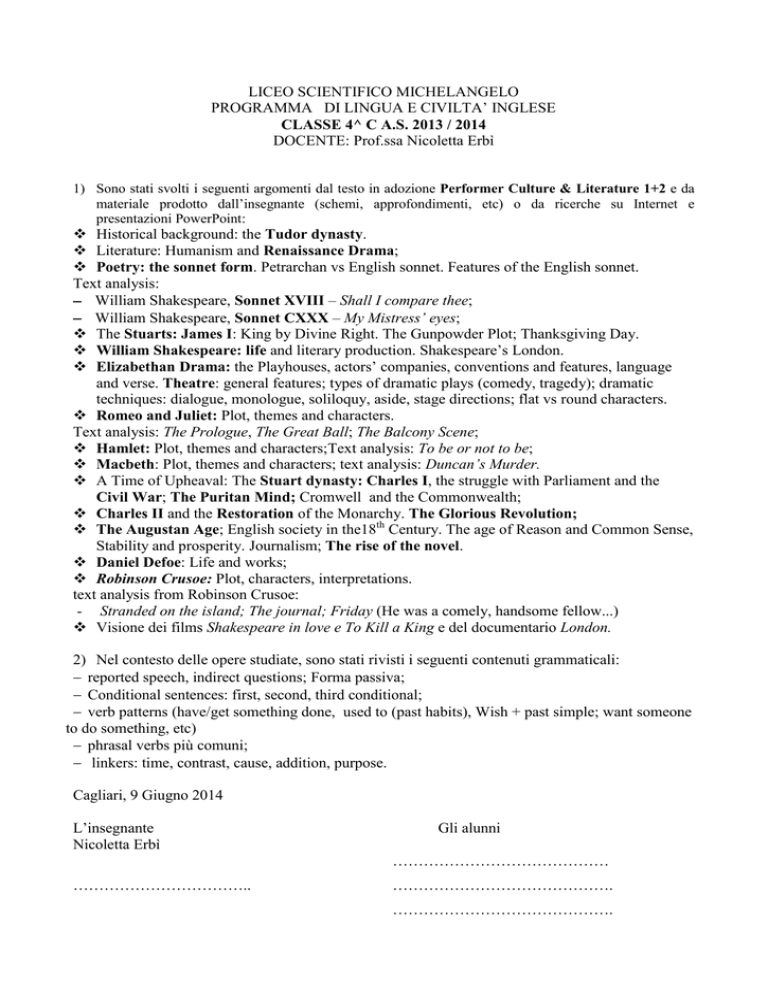
LICEO SCIENTIFICO MICHELANGELO
PROGRAMMA DI LINGUA E CIVILTA’ INGLESE
CLASSE 4^ C A.S. 2013 / 2014
DOCENTE: Prof.ssa Nicoletta Erbì
1) Sono stati svolti i seguenti argomenti dal testo in adozione Performer Culture & Literature 1+2 e da
materiale prodotto dall’insegnante (schemi, approfondimenti, etc) o da ricerche su Internet e
presentazioni PowerPoint:
Historical background: the Tudor dynasty.
Literature: Humanism and Renaissance Drama;
Poetry: the sonnet form. Petrarchan vs English sonnet. Features of the English sonnet.
Text analysis:
William Shakespeare, Sonnet XVIII – Shall I compare thee;
William Shakespeare, Sonnet CXXX – My Mistress’ eyes;
The Stuarts: James I: King by Divine Right. The Gunpowder Plot; Thanksgiving Day.
William Shakespeare: life and literary production. Shakespeare’s London.
Elizabethan Drama: the Playhouses, actors’ companies, conventions and features, language
and verse. Theatre: general features; types of dramatic plays (comedy, tragedy); dramatic
techniques: dialogue, monologue, soliloquy, aside, stage directions; flat vs round characters.
Romeo and Juliet: Plot, themes and characters.
Text analysis: The Prologue, The Great Ball; The Balcony Scene;
Hamlet: Plot, themes and characters;Text analysis: To be or not to be;
Macbeth: Plot, themes and characters; text analysis: Duncan’s Murder.
A Time of Upheaval: The Stuart dynasty: Charles I, the struggle with Parliament and the
Civil War; The Puritan Mind; Cromwell and the Commonwealth;
Charles II and the Restoration of the Monarchy. The Glorious Revolution;
The Augustan Age; English society in the18th Century. The age of Reason and Common Sense,
Stability and prosperity. Journalism; The rise of the novel.
Daniel Defoe: Life and works;
Robinson Crusoe: Plot, characters, interpretations.
text analysis from Robinson Crusoe:
- Stranded on the island; The journal; Friday (He was a comely, handsome fellow...)
Visione dei films Shakespeare in love e To Kill a King e del documentario London.
2) Nel contesto delle opere studiate, sono stati rivisti i seguenti contenuti grammaticali:
reported speech, indirect questions; Forma passiva;
Conditional sentences: first, second, third conditional;
verb patterns (have/get something done, used to (past habits), Wish + past simple; want someone
to do something, etc)
phrasal verbs più comuni;
linkers: time, contrast, cause, addition, purpose.
Cagliari, 9 Giugno 2014
L’insegnante
Nicoletta Erbì
Gli alunni
……………………………………
……………………………..
…………………………………….
…………………………………….

